cf #96: how your brand gets chosen
in which you and I go to see a musical 🎭
You are reading contentfolks—a monthly(ish) blend of sticky notes, big content ideas, and small practical examples. Thank you for being here! ~fio
Hey there 👋
Pack your bag: today, you’re coming with me on a short trip to Edinburgh, Scotland, where the entire month of August is taken over by the Fringe—an international performing arts festival with 3800+ shows from 63 countries including cabaret, dance, comedy, circus, mime, musicals, and theatre.
I promise we’re not going to do that thing where we go to the Fringe, learn 7 things about B2B marketing, and put them in a compact listicle. Our journey today is about illustrating a single, crucial marketing concept: mental availability, or a brand’s ability to come to mind in a buying situation.
Overload → recall
As we walk in the city centre, brace yourself: the Fringe is intense.
We can pick up the official programme, which runs at a leisurely 384 pages, plus any of the large company programmes at 30-50 pages each. Yes, you’ll need a sturdy tote bag to carry them all. The city is packed with performers and crowds; every available wall is covered in posters, and as we shuffle around, we will be handed anywhere from five to fifty leaflets in the next six minutes.
We are just two people in a total addressable market of three million, but this is total information overload. With so many shows competing for attention, we cannot possibly vet them all individually, weigh the pros and cons, and make a rational decision. In fact, whether we see a show at all may simply depend on how easily it comes to mind when we ask each other “What should we see next?”
The shows that are ‘mentally available’ to us, and thus make it onto our mental shortlist, are likely leaning on cues that are easy to recognise and recall: a memorable title, an intriguing concept, an eye-catching poster, a performer in branded merch working the streets.
Some of these cues might work on their own, but their real impact comes from repeated exposure: the t-shirt we see today matches the posters we passed seventeen times yesterday, which in turn reminded us of the interesting blurb we read on the leaflet we were handed two days ago.
Distinctive brand assets and messaging work by accumulation: they reduce cognitive load and give us handy shortcuts when we need them—and this is the story of how, with a free hour, you scan all the options, recognise “the green musical about the doomed love affair between Earth and humanity,” and we get tickets to see Hot Mess.
Mental availability + social proof = 🔥
After preview week, the official reviews start to come in. Suddenly, all the posters we’ve been seeing get updated with star rating stickers (four and five stars only, obviously) and one-line quotes from major newspapers and well-known critics.
These reviews rarely create awareness, but they do amplify it. They function as trust accelerators, taking something you half-remember and may have previously considered, and pushing it to the top of your list.
That’s how a poster you’ve seen a hundred times suddenly feels more urgent once it’s got five stars and a quote from the Guardian stuck on it—and this is the story of how, even with three weeks still to go, we are not going to see Hot Mess again, because the entire run is now sold out.
Different stakes, same logic
Obviously, there is a vast difference between spending £15 and 75 minutes at the theatre and committing to a B2B purchase that requires budget approval and a complex implementation.
…but the fundamental logic, the mental mechanics involved, are very much the same: in both cases, the choice is shaped long before the ‘buy’ moment. People can’t choose something if they don’t know it exists; and when the time comes for a choice, they are likely to pick from a set of options they already have in mind.
It doesn’t matter if it’s resource management software or a musical: mental availability decides what gets picked. In B2B, it’s how you win customers. And at the Fringe… it’s how I learned I should have re-booked Hot Mess sooner 😖
Until next time,


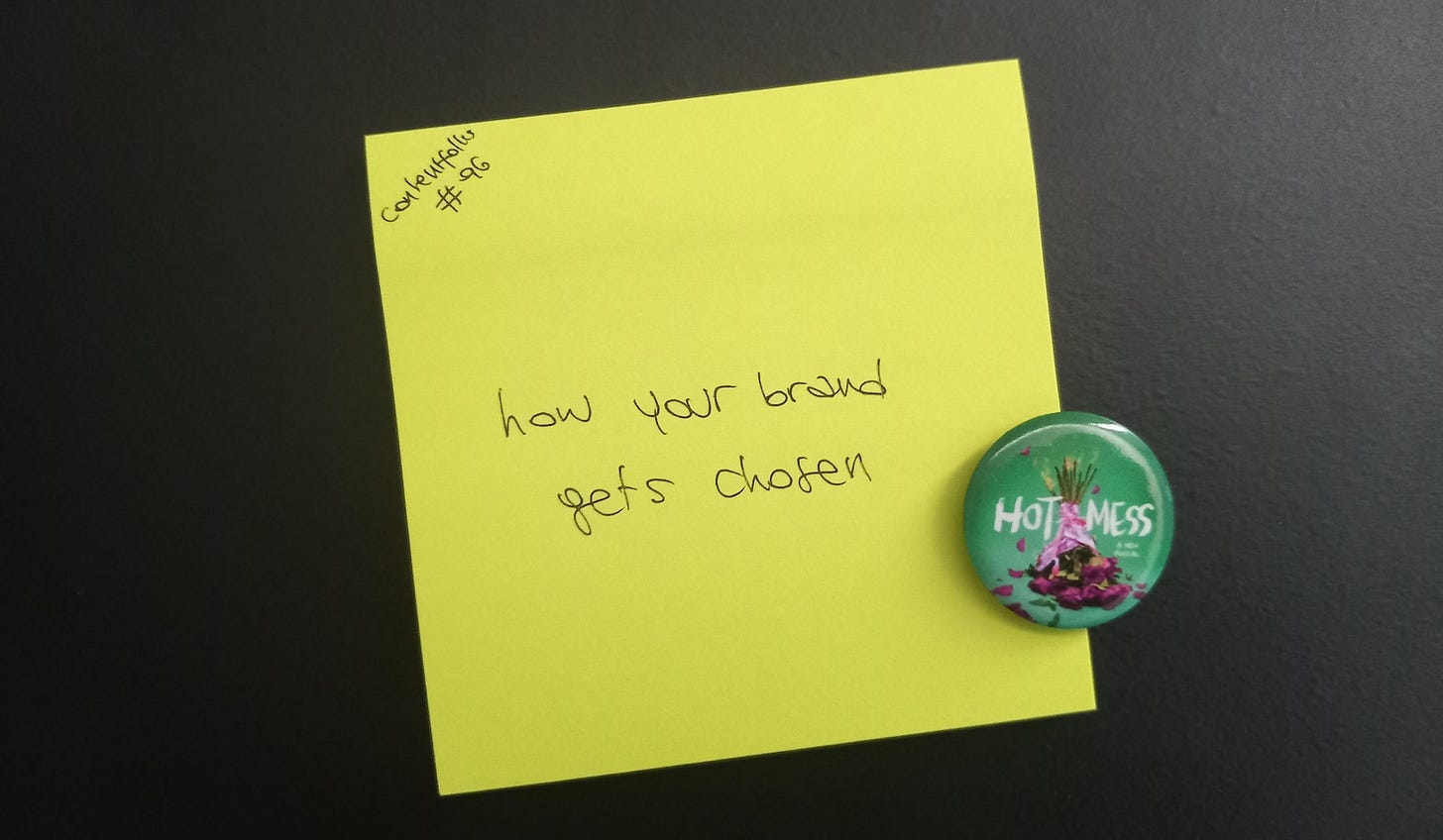
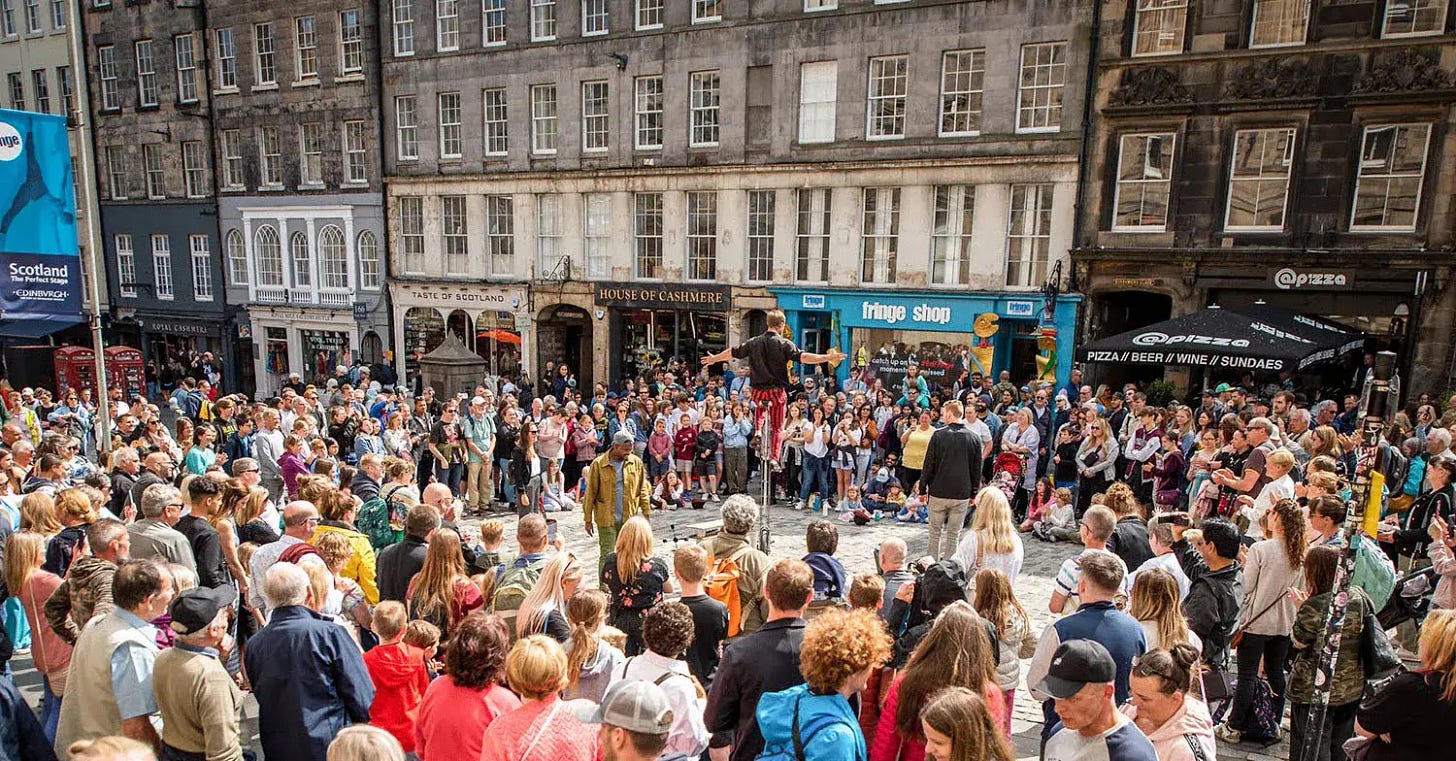
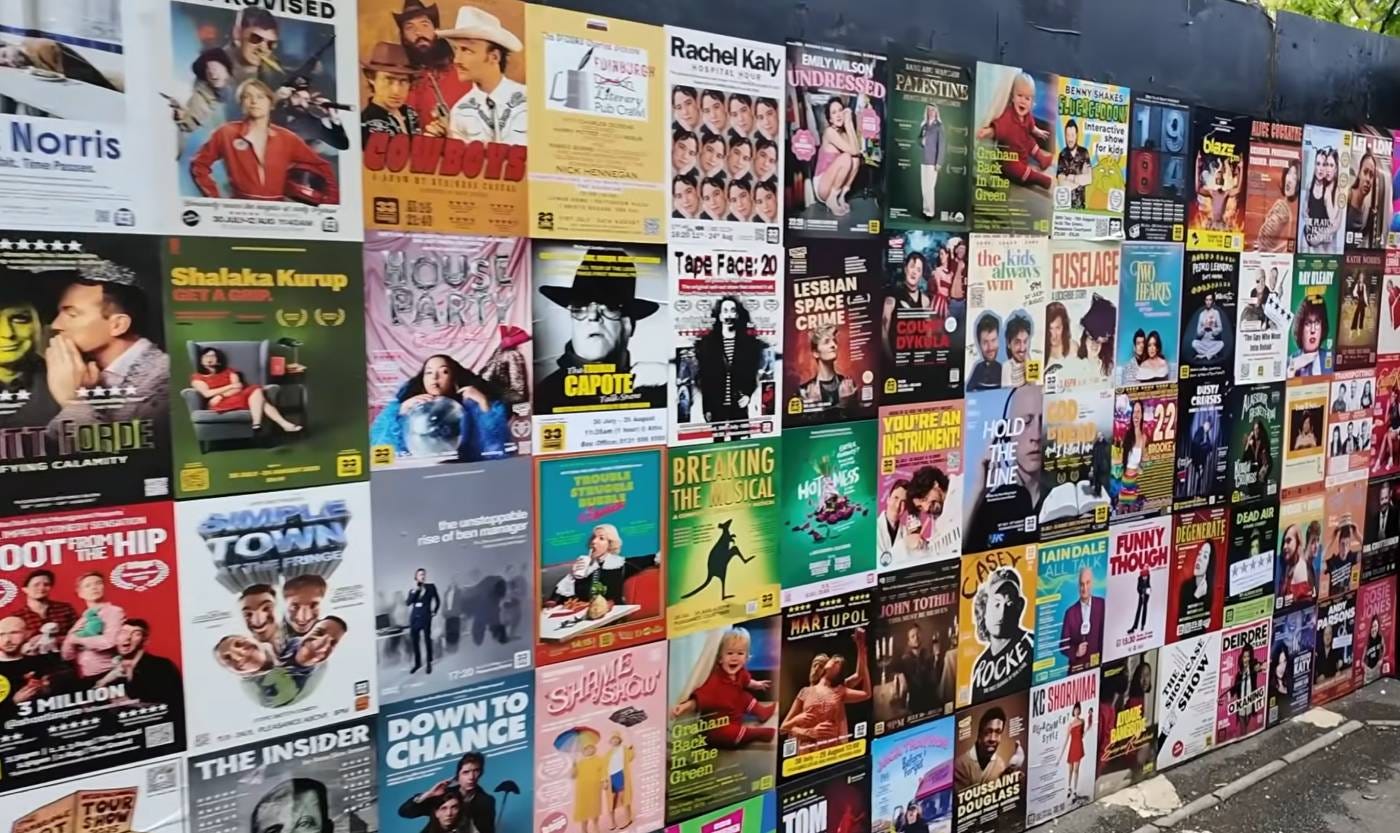
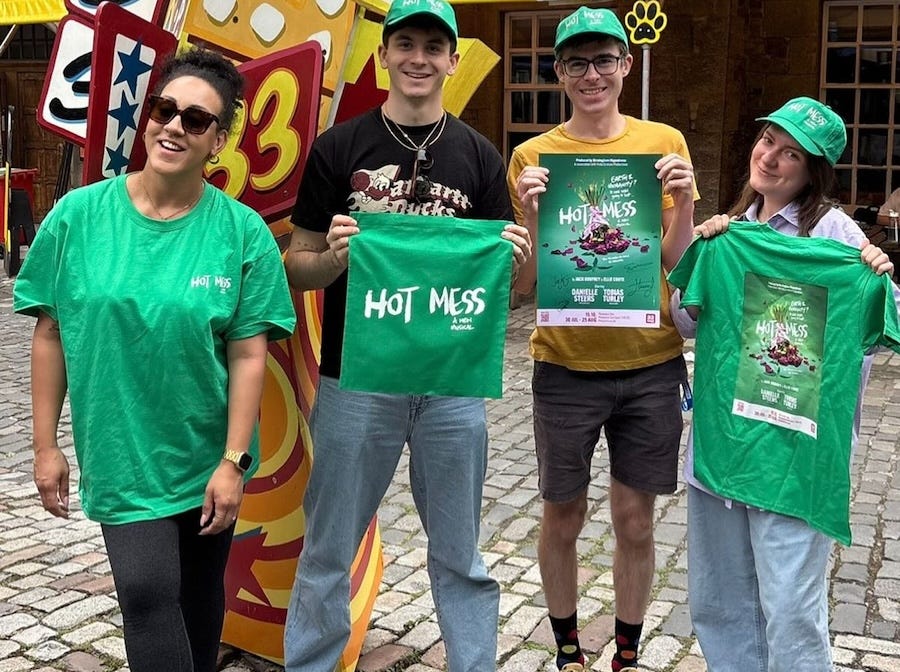
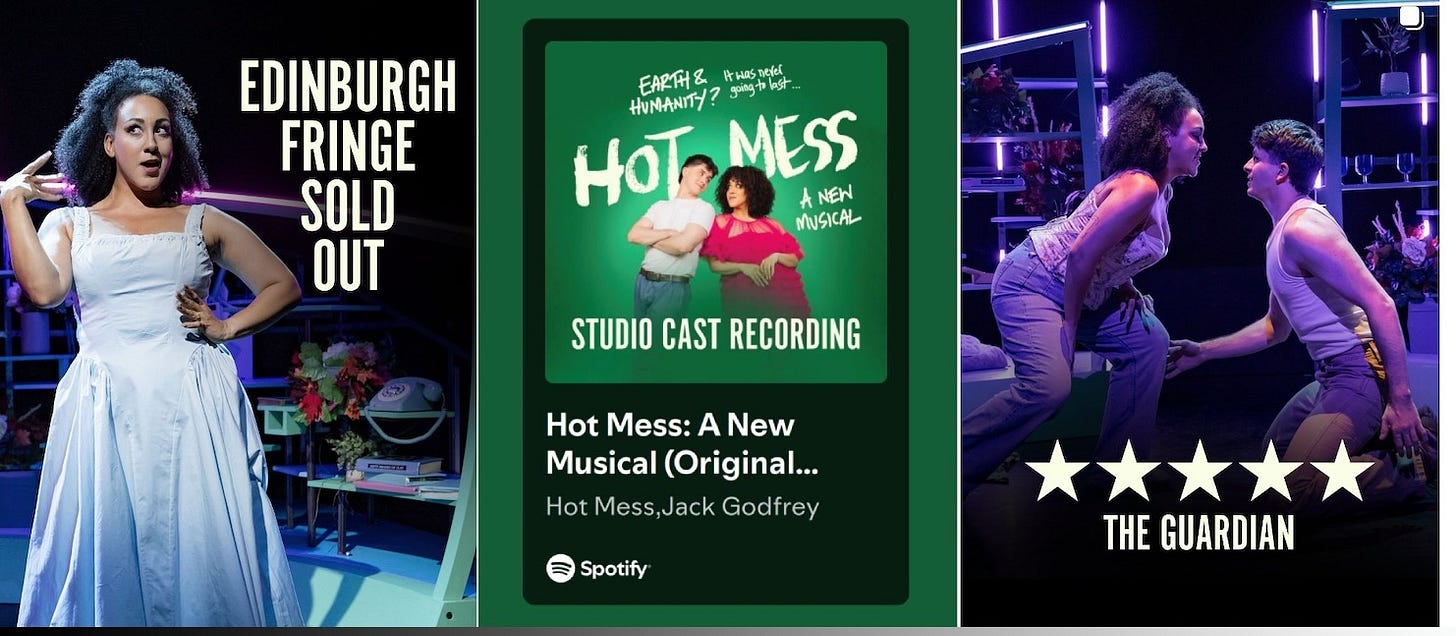
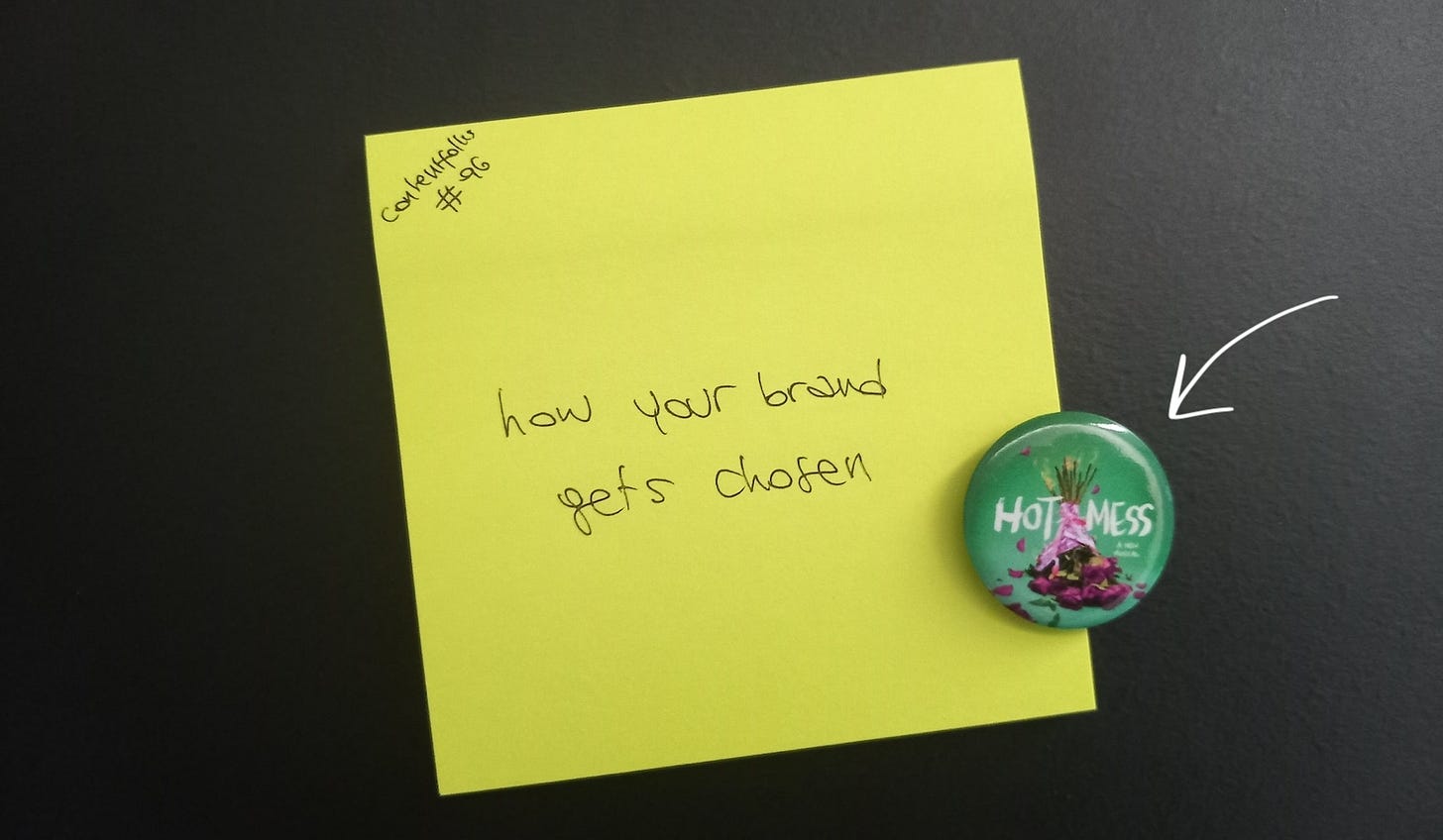

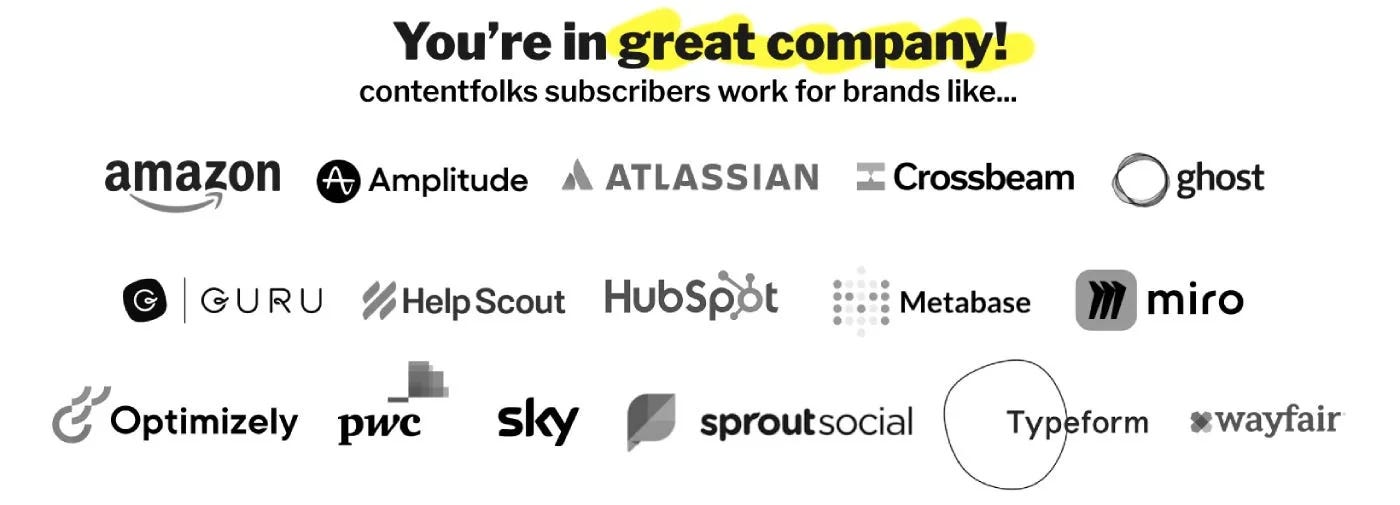
I’m not saying this because I work with you. You’re brilliant. I am reading How Brands Grow and this is the best description of mental availability I’ve seen so far.
We needed a new microwave fast. There were only a few models in the online catalogue for the closest store. We wanted white. I remembered I'd used a Samsung in a cafe before and it had been a soldier. So we got the white Samsung. Never saw a Samsung ad, never considered reviews of the store. Done.